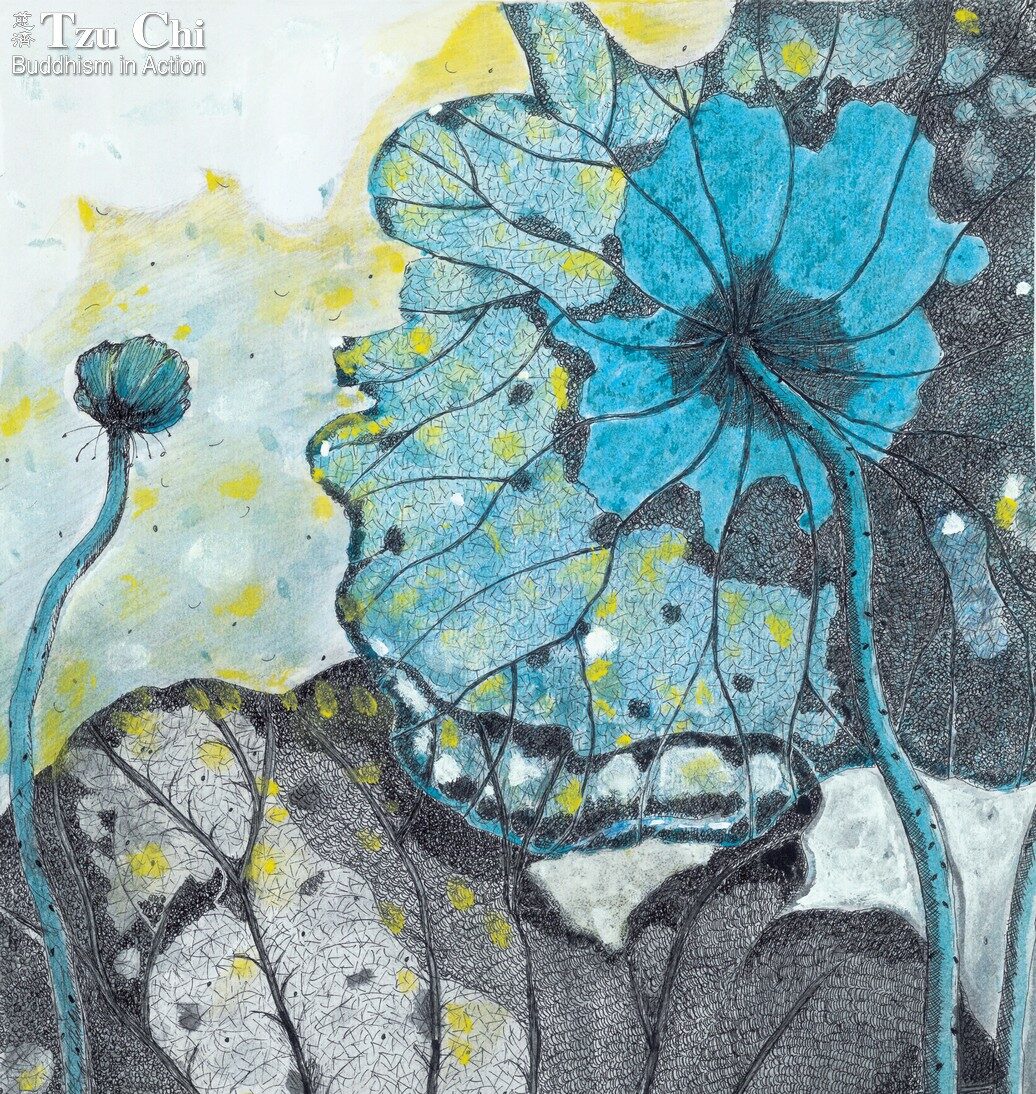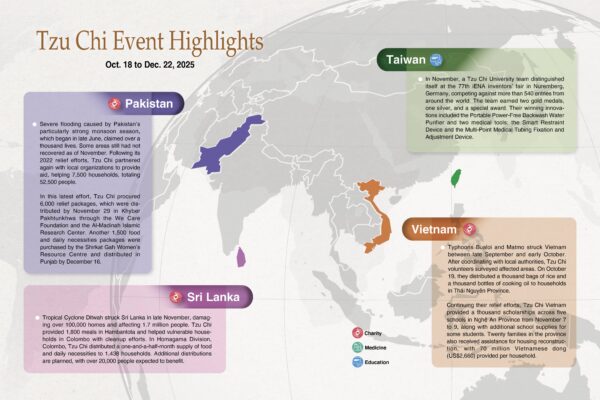Narrated by Huang Jing Li
Compiled by Chen Xiang-ru
Translated by Wu Hsiao-ting
Graphic by Su Fang-pei
Helping others may seem like a small effort for volunteers, but it can have a huge and meaningful impact on those who are in need.

As a hospital volunteer, I often witness suffering and the impermanence of life. One evening at Taichung Tzu Chi Hospital in central Taiwan, a medical worker in the emergency room notified me that a little girl had been brought in without vital signs and that her family might need support. Upon entering the emergency room, I noticed family members arriving one by one. I stayed with them, listening to the doctor explain the situation.
After confirming that the child had recently had a cold and fever, the doctor gently explained: “We have diagnosed her with myocarditis, which led to heart failure. We made every effort, but regrettably were not able to save her. As a parent myself, I deeply sympathize with you for your loss.”
The father of the girl recounted the tragic events of the day. He had been riding a motor scooter carrying his two children to their school seminar. While waiting at a traffic light, his eight-year-old daughter—the one who had passed away—suddenly swayed, her whole body becoming limp. He quickly reached out to catch her and called out to her, with bystanders nearby also coming to help. The girl briefly regained consciousness and said to her father, “I fell asleep.” But less than five seconds later, she breathed her last, falling asleep forever.
The father was overwhelmed with guilt about his daughter’s passing. “Why didn’t I take better care of her?” he lamented. I tried to console him, reassuring him that fortunately, his motor scooter was stopped at a traffic light when it all happened. If his daughter had fallen while the vehicle was moving, the situation would have been even more devastating.
The man’s other child, a boy, thoughtfully comforted him by gently patting his back with his hand. I asked the boy if he understood what had happened to his elder sister. He replied that he didn’t, but asked, “Can I see her?” I said yes and explained to him that his sister’s heart had been attacked by bacteria and couldn’t beat anymore. He asked, “She died, didn’t she?”
Taking him to his sister, I guided the boy to bid farewell and express love to his sister. Given the chilly weather, I wrapped him in a blanket and said, “Imagine this is your sister hugging you, telling you how much she loves you.” The younger brother said in response, “Sis, I love you so much too. I’m sorry for arguing with you so often.”
Though visibly saddened, the boy suppressed his tears, saying, “I must hold it in; I can only shed a few tears because I saw how sad Dad is. I’ve never seen him cry like this before.” Despite his young age, he sought to comfort the adults, staying strong in the face of his own grief. His fortitude made our hearts go out to him all the more.
The girl’s homeroom teacher had also hurried to the hospital. Getting close to the girl, the teacher said to her, “We’ve discussed and decided to help style your hair next Monday. A comb and hair accessories have already been purchased…. I want to thank you. Though our time together as teacher and student was brief, I realized what a nice child and good student you were. I really love you.”
On the day of the girl’s funeral, other volunteers and I showed up to say goodbye to her and offer the family support. We sincerely extended our condolences and wished the beloved little angel the best.
We all encounter different connections and separations in life. The memories we gather along the way leave marks on us and play a role in shaping who we are.
On another occasion, I received a call from the hospital lobby, informing me that a patient needed someone to pick up some gas for her. I headed over to see what was going on. When I arrived, the patient, sitting in a wheelchair, explained that she’d injured her leg a month before. She’d come to the hospital on her scooter for a follow-up appointment, only to realize upon arrival it was running low on gas. Worried about getting stuck on her way back and unable to push the scooter to the nearest gas station herself, she sought the assistance of a volunteer to help refuel her vehicle.
A male volunteer near the hospital entrance overheard us and offered to go to a gas station to get gas for her. Another volunteer stepped up to help as well. “It’s already past noon. I’ll grab lunch for you, so you won’t be hungry after your appointment,” she said. One volunteer got the gas, another got lunch, and some stayed to keep her company. Before she left, the patient kept saying how warm and welcoming the hospital felt.
As volunteers, offering assistance to others may seem like a small gesture, but it can profoundly impact those who are suffering or in need. While each of us volunteers in Tzu Chi may come from different backgrounds and age groups, we all share the same desire to give to others. Dharma Master Cheng Yen often encourages us to observe, learn, and grow through our service experiences. Tzu Chi provides a nurturing environment where we can both enrich ourselves and support others in need.



